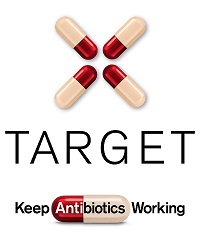Resources for the community pharmacy setting
RTI leaflet for community pharmacies
RTI pharmacy leaflet HTML

For community pharmacy
Contents
- Your infection
- How to look after yourself and your family
- When to get help
- Consider COVID-19
- About antibiotics
- About this leaflet
Your infection
Middle-ear infection
Without antibiotics, most are better by 8 days.
Sore throat
Without antibiotics, most are better by 7-8 days.
Sinusitis
Without antibiotics, most are better by 14-21 days.
Common cold
Without antibiotics, most are better by 14 days.
Cough or bronchitis
Without antibiotics, most are better by 21 days (a cough caused by COVID-19 may differ).
How to look after yourself and your family
- Have plenty of rest.
- Drink enough fluids to avoid feeling thirsty.
- Ask your local pharmacist to recommend medicines to help your symptoms or pain (or both).
- Fever is a sign the body is fighting the infection and usually gets better by itself in most cases. You can use paracetamol if you or your child are feeling uncomfortable as a result of a fever.
- Use a tissue and wash your hands with soap to help prevent spread of your infection to your family, friends and others you meet.
When to get help
Serious signs and symptoms
If you or your child has any of these symptoms, are getting worse or are sicker than you would expect (even if your/their temperature falls), trust your instincts and seek medical advice urgently from NHS 111 or your GP. If a child under the age of 5 has any of symptoms 1–3 go to A&E immediately or call 999.
- If your skin is very cold or has a strange colour, or you develop an unusual rash.
- If you have new feelings of confusion or drowsiness, or have slurred speech.
- If you have difficulty breathing. Signs that suggest breathing problems can be:
- breathing quickly
- turning blue around the lips and the skin below the mouth
- skin between or above the ribs getting sucked or pulled in with every breath.
- If you develop a severe headache and are sick.
- If you develop chest pain.
- If you have difficulty swallowing or are drooling.
- If you cough up blood.
- If you are passing little or no urine.
- If you are feeling a lot worse.
Less serious signs that can usually wait until the next available appointment
- If you are not starting to improve a little by the time given in ‘Your infection’, above
- Children with middle-ear infection: if fluid is coming out of their ears or they have new deafness
- Mild side effects such as diarrhea: seek medical attention if you are concerned.
COVID-19 specific advice
If you think you may have COVID-19 then please visit GOV.UK's coronavirus section and the NHS for the latest guidance and information.
Advice about antibiotics
- Colds, most coughs, sinusitis, ear infections, sore throats, and other infections often get better without antibiotics, as your body can usually fight these infections on its own.
- Taking any antibiotics makes bacteria that live inside your body more resistant. This means that antibiotics may not work when you really need them.
- Antibiotics can cause side effects such as rashes, thrush, stomach pains, diarrhoea, reactions to sunlight, other symptoms; or being sick if you drink alcohol with the antibiotic metronidazole.
- Find out more about how you can make better use of antibiotics and help keep this vital treatment effective by visiting the NHS antibiotics webpages.
Never share antibiotics and always return any unused antibiotics to a pharmacy for safe disposal.
About this leaflet
TARGET is operated by the UK Health Security Agency. Developed in collaboration with professional medical bodies.
Version: 1
Published: September 2022
Review: September 2025